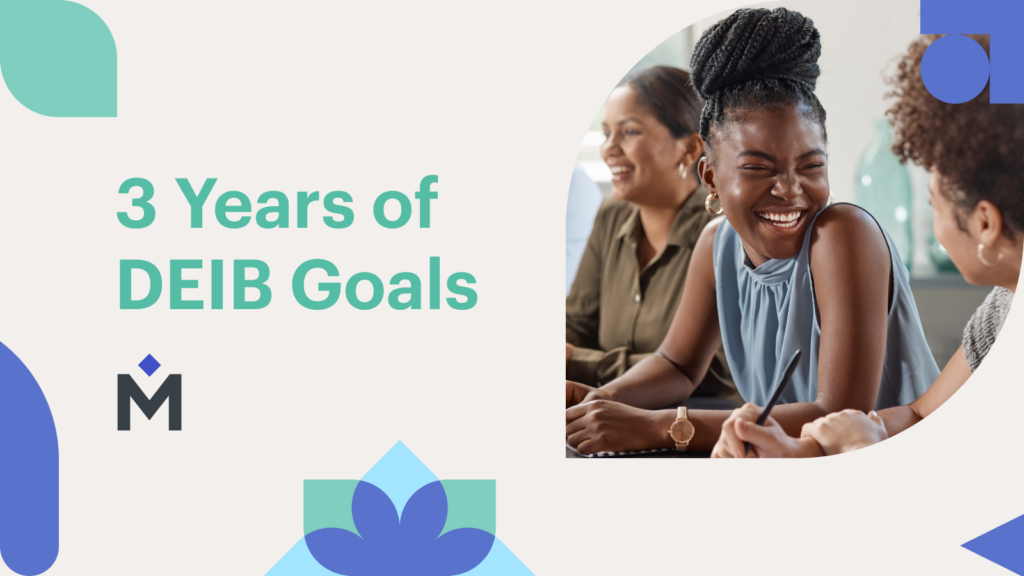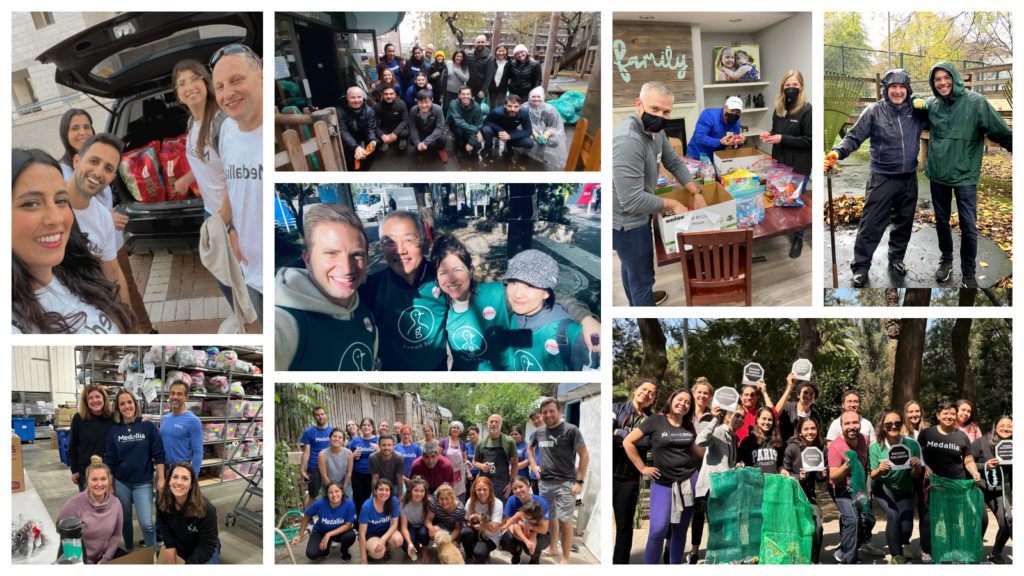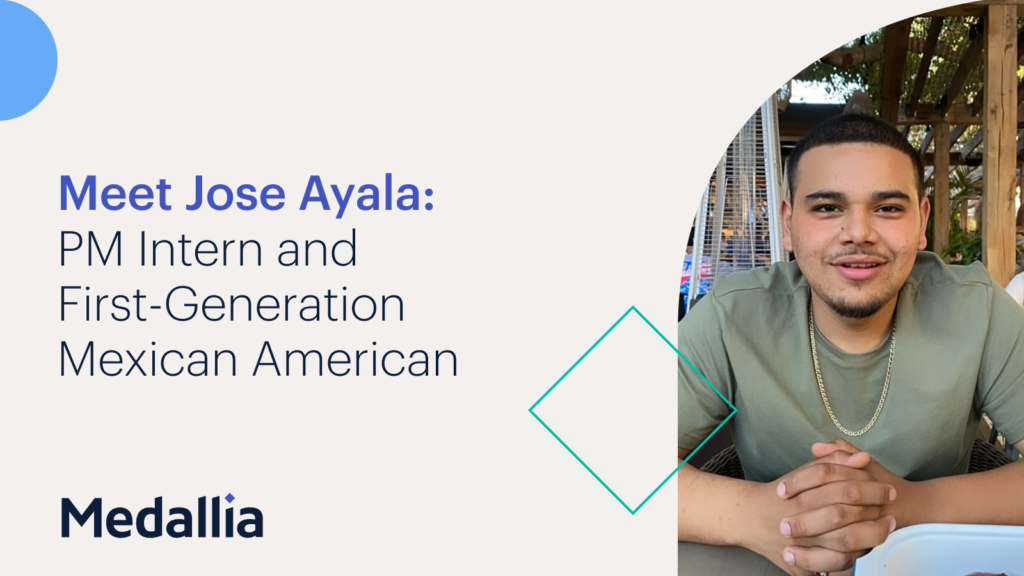Inspired by her job search following the Peace Corps, Medallia President and Co-Founder Amy Pressman connected with BreakLine Co-Founder Bethany Coates in 2014 to better understand and recruit top veteran talent. “It’s unusual for a co-founder to take that initiative,” says Coates, “but Amy knew what it’s like to be pigeonholed as a candidate, and wanted to put into action her expansive mindset about what top talent looks like.”
BreakLine, which provides skills-based training, education, and professional networking for a competitive pool of veteran participants, is proud to include Medallia on their partner list. For this piece, Inclusion Practice Lead Lauren Jackman spoke with Medallians and recent BreakLine alums Matt Brendel and Najeeb Ahmed about their transition from the military to a civilian workplace, and how they value Medallia’s commitment to its people and culture.
Let’s start with the basics. What is your role at Medallia?
Matt: I’m an analyst in Professional Services based in the New York City office. I help our clients implement our platform and customize it to meet their needs. On any given day I could be collaborating with clients’ IT teams, conducting ad hoc data analysis, or configuring surveys and analytical dashboards. It’s a good mix of head-down analysis and communication with clients. I came to Medallia with a lot of analytical and program management experience; this role is an opportunity to build up my technical expertise.
Najeeb: I’m a senior manager within the technical programming section. My role is inward-facing; as Medallia scales, I’m helping our internal processes evolve. I also work with some outward-facing teams, to make sure we have a handle on how projects are being developed.
Tell us about your military careers.
Najeeb: I never considered the military until I got into college—and my parents asked who was paying for it! I took a scholarship from the Air Force and ended up staying after my four years of service; it was fun, energetic work, with high-caliber people and a clear mission. I worked on space and aircraft projects as a developmental engineer, then I did flight testing on F-16s. My last position was Senior Materiel Leader in the F-35 Lightning II Joint Strike Fighter Program Office, where I helped with technology integration.
Matt: I attended the Naval Academy, and then served five years as a surface warfare officer in the Navy. I was stationed on two ships, a destroyer and an amphibious assault ship, and deployed mostly to the Persian Gulf and Africa’s east coast. I got to see the world, learned to manage teams and projects, and worked with some very talented sailors.
Any experiences from your service that you’re particularly proud of?
Matt: A rescue operation in 2013 stands out for me. A boat had caught fire off the coast of Libya, with close to 200 migrants on board. Some people were already gone when we arrived, but we were able to rescue most of them.
Najeeb: During a deployment in Bosnia in 2008, we led an international search for indicted war criminals. Some heinous crimes had been committed, and bringing these people to justice was a first step toward peace. I think we helped to close some open wounds.
How did you get involved with BreakLine?
Matt: A friend from the Naval Academy told me about it, and I was in the first cohort last year. We spent a month at four different tech companies, learning from senior executives and participating in workshops led by Stanford professors. Then in the evenings there were more casual networking events.
The experience really helps you crystallize how your strengths and interests could translate to the corporate setting. I realized that, while driving a ship may not translate directly to the business world, the people and project management skills I’ve developed absolutely do.
Najeeb: I spent a year at MIT while I was in the Air Force, studying complex system design management. I learned about innovation from some of the best design thinkers out there, and I came back inspired and pumped up. I took a Senior Position within the F-35 program after that, with grand visions of driving innovation—but after a few years, I got tired of fighting bureaucracy and not seeing the changes I knew we could make. I’d read about BreakLine, so I reached out to Bethany when I decided it was time to make a transition.
Can you speak to any challenges you faced during the transition to civilian life?
Najeeb: You don’t get much experience with networking in the military; you don’t even need a résumé. So at a happy hour recruiting event, for example, it feels unnatural to walk up to someone and talk about yourself. We had to learn the etiquette and build those muscles, which is why programs like BreakLine are so essential.
Matt: I struggled during recruiting with that same sense of humility, and I also had to learn to get my story down pat in terms of how my skills transfer to tech jobs. A candidate with a civilian background might be able to take that for granted in a way we can’t.
What was your recruitment process with Medallia like, and why did you ultimately choose to join?
Matt: I dropped a résumé at a Medallia’s happy hour and a recruiter called a week or two later. Throughout the process, I was impressed with everybody I spoke with. I could see a parallel between the company’s mission and that sense you have in the military that your work has a greater purpose. I considered positions at other tech companies, but nothing seemed to match as much culturally or professionally as the opportunity here.
Najeeb: Medallia was one of the companies my BreakLine cohort visited, and I actually took a day from the regular tour to do an interview. That’s when I started to see how personable and enthusiastic this team is. The military taught me that people are, without question, the most essential part of any job. I remember, when I described a few of the Medallians I’d met to my wife, she said, “They sound amazing. This is where you should work.”
How has working at Medallia been different from the military?
Matt: The pace is much faster. We’re constantly changing our product to meet evolving business needs, and I feel like I learn something new every day. There’s also a refreshing lack of bureaucracy here; when someone has an idea, they’re encouraged to try it.
Najeeb: Like any cutting-edge company, Medallia has to be able to pivot. Likewise in the military, you might be thrown into a situation with half a day to figure it out. At the same time, veterans have a lot of practice with staying on course and can offer our colleagues a gentle check when we might be pivoting too quickly. Matt and I have been through some dramatic experiences you wouldn’t see in the private sector, which helps us put things in perspective.
I will say it also felt strange to go into work without shaving after doing so every single day for 25 years— but I’ve adapted quickly to that!
What was onboarding like for each of you?
Najeeb: I’ve been through a lot of onboarding in my career, both as a participant and leader, and I’ve never experienced a three-day, dedicated program like the one we have here. I was incredibly impressed to see Medallia make such a serious investment in the company’s talent. And I walked out of onboarding with a support team place; you show up on Monday with a dozen folks already in your corner.
What advice would you give to incoming BreakLiners?
Najeeb: Before you start the process, take the time to do your own self-assessment. Figure out what excites you, what makes you happy, and what you don’t want to do. The other thing I’d say is to enter with an open mind. Honestly, the first time I walked into Medallia, I thought I already knew who they were—an analytics company, and not necessarily what I was looking for. Because I kept an open mind, though, I had the chance to realize what an awesome fit it actually was.
Matt: I’d add that you should make a conscious effort to absorb every single minute. The BreakLine program is tightly packed and it can be tiring, but it’s full of vital moments you don’t want to miss. Do your best to stay on track and follow up on the connections you make. Also, have your résumé ready and your LinkedIn page updated. Your skills are valuable, and you want to go in being as confident in that as possible.
This story was created in conjunction with Job Portraits, a San Francisco-based creative agency that helps teams scale using culture-focused content.






